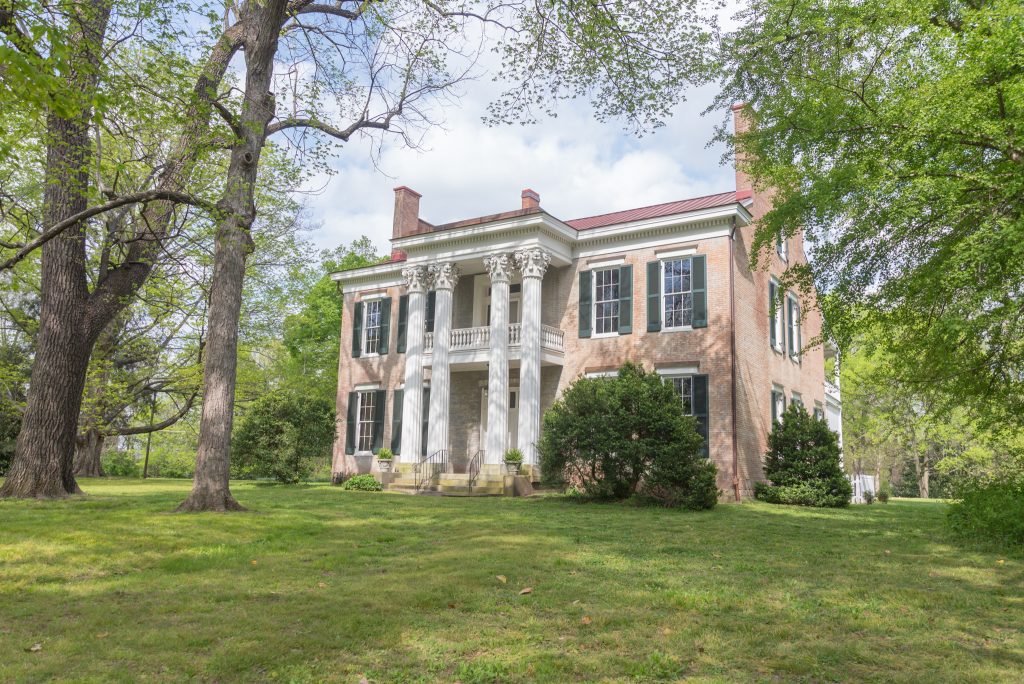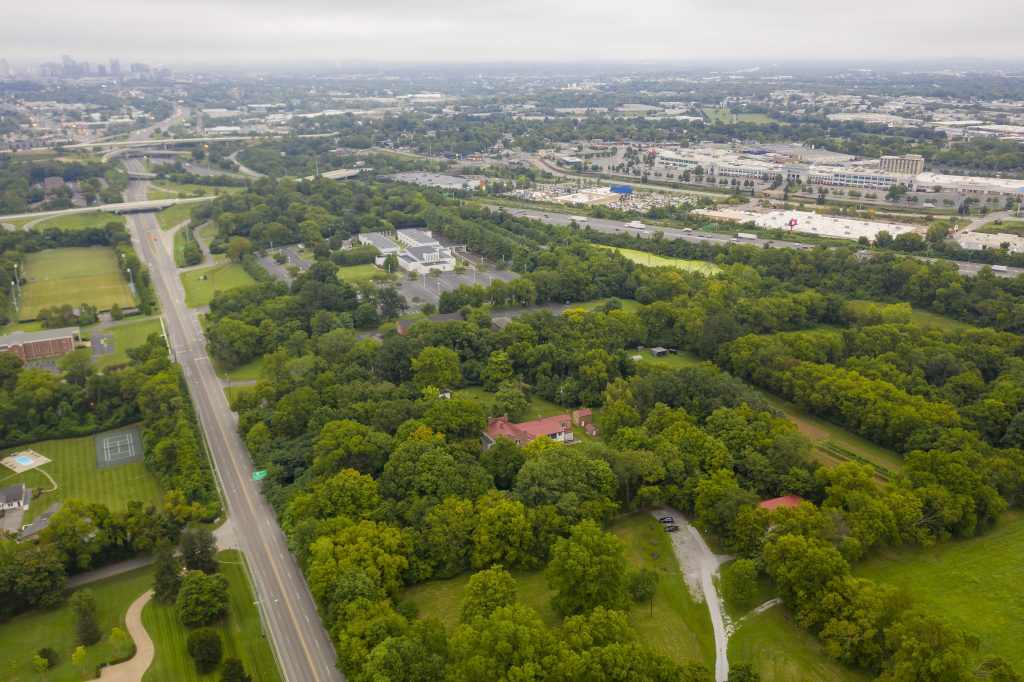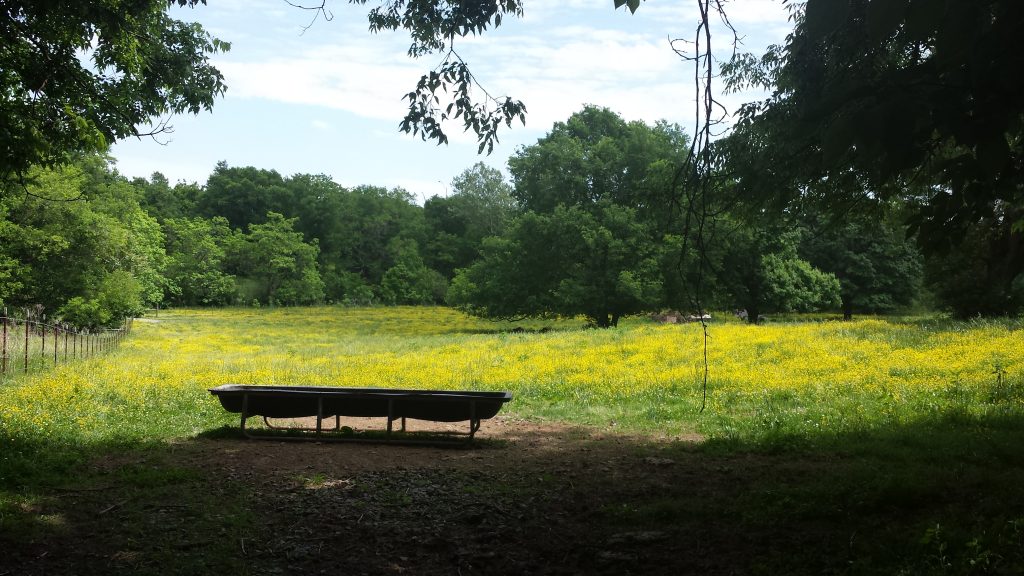Highlighting Women Landowners for Women’s History Month
Dedication, Tenacity, and Grit: The Land Trust for Tennessee honors Women Landowners
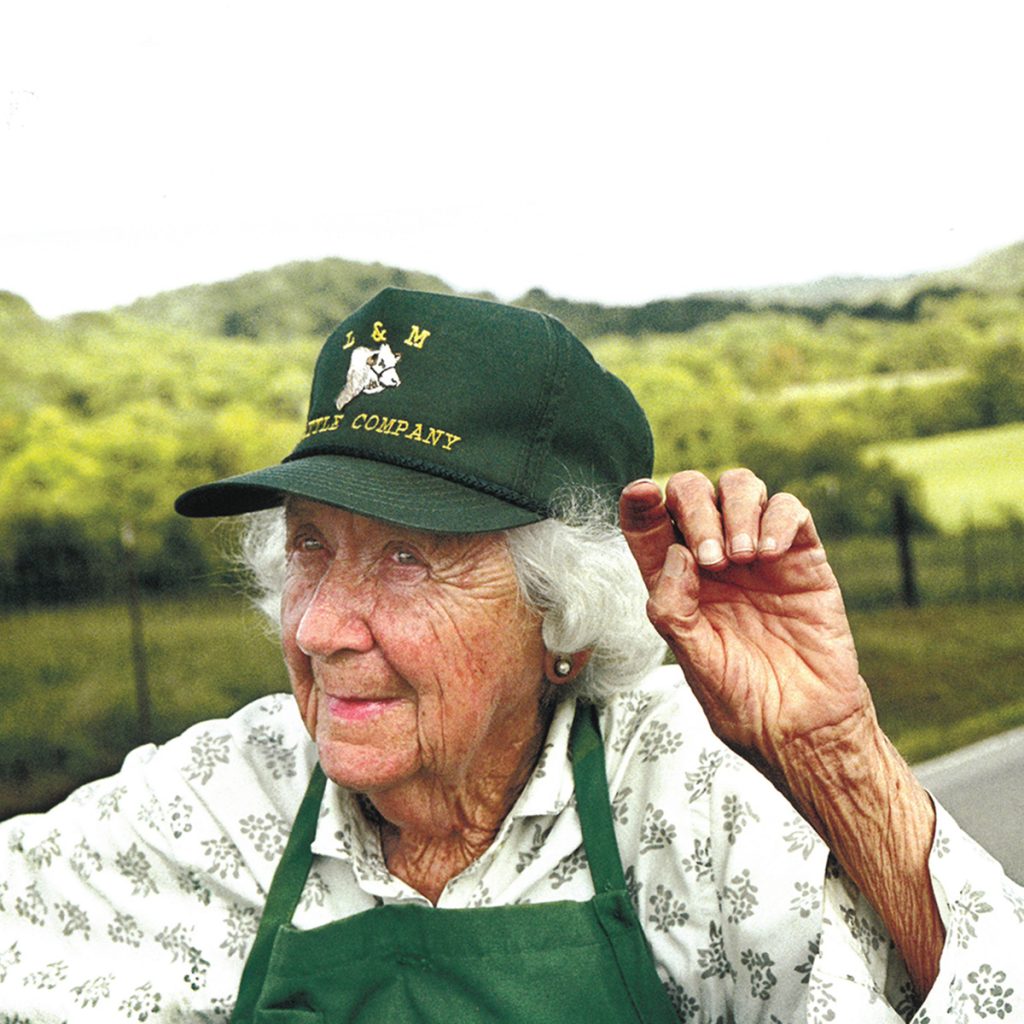
As Women’s History Month draws to a close, we would like to recognize a few of the women landowners we’ve had the great fortune of working with over the years.
It is important to remind ourselves, that despite all the progress made in recent decades, it wasn’t until the mid-20th century that many women were even able to own property in their name outright. In the mid-1970’s, key pieces of federal legislation were passed that struck down discrimination in lending; thereby making mortgages more accessible and allowing women to obtain their own lines of credit. Prior to that, most women were only able to hold their own property if it was inherited from another family member or control was transferred to them due to the incapacitation of a spouse (1835).
Although times have changed quite a bit since then, according to the Food and Agriculture Organization of the United Nations’ Gender and Land Rights database, in 2012 women owned just 13.7% of all the agricultural land in the United States. Given that fact, having the ability to celebrate these women landowners and share their stories is something we are honored to do.
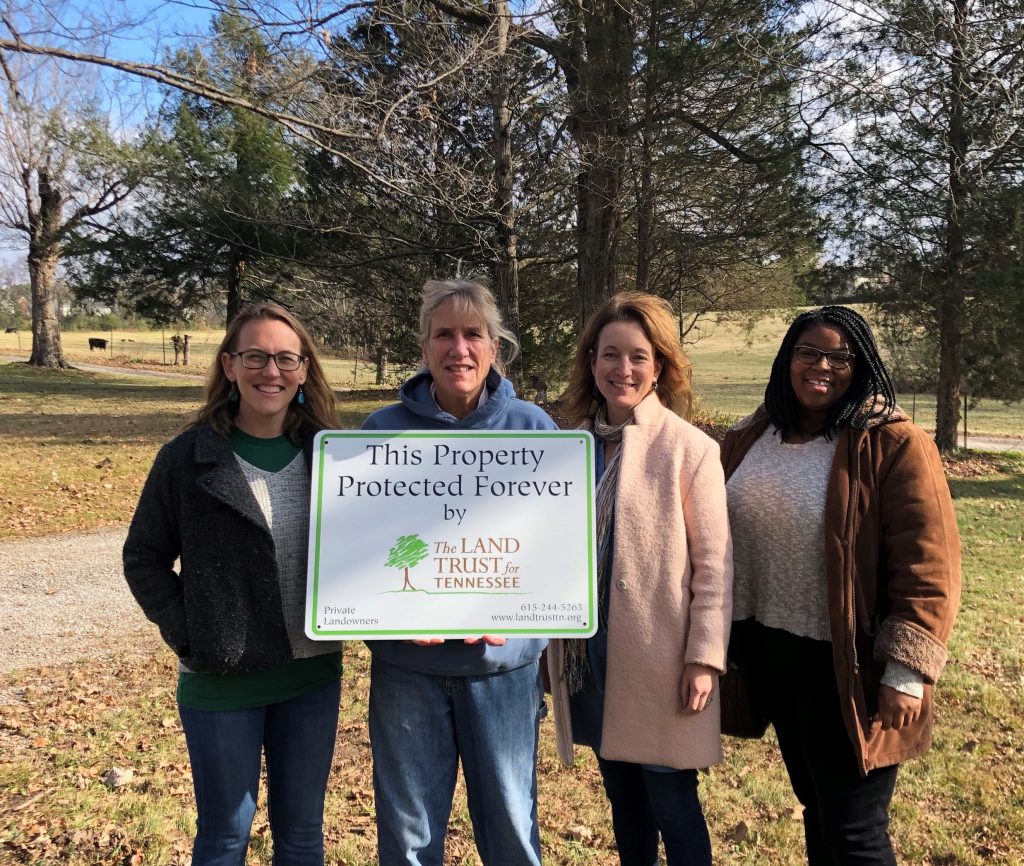
Judy and Karen Guy: Old Hickory
With nearly 200 acres of historic farmland between them, sisters Judy and Karen Guy have first-hand experience in land conservation amidst the rapid growth of Hermitage and Old Hickory, just east of Nashville. Their dedication to preserving the rural character and history of Middle Tennessee runs deep. As descendants of Rachel Donelson, wife of United States President Andrew Jackson, they have leveraged their strong ties to the land in order to create a better, healthier community for everyone around them.
When Judy Guy decided to conserve her historic 45-acre working farm – raising hogs, cattle, sheep, and breeding horses – in 2018 with The Land Trust for Tennessee, her decision did more than just protect land that had been in her family for seven generations, it ensured the longevity of her community. The farm would continue to be a source of food production, have vast open space, and provide habitat for native wildlife.
“[Conserving] what is left of this amazing piece of agricultural history and the ingenuity of previous generations brings me happiness and peace of mind, knowing future generations will have the opportunity to learn from it and enjoy it,” said Judy.
Just a few miles away, her sister Karen lives on Hunter’s Hill Farm. Protected in 2007 through a conservation easement with The Land Trust, this fifth-generation family farm, once owned by Andrew Jackson, is made up of 150 acres where cattle graze, hay is cut, and the Guy family lives and works in the rapidly growing city of Old Hickory. Karen has been able to preserve the natural habitat for indigenous flora and fauna, adjacent to Old Hickory Lake and the Cumberland River, for generations to come.
Susan West: Glen Leven Farm
If you want to know the definition of a tenacious landowner in the face of numerous offers from real estate developers and high-profile private buyers, and even the encroachment of the interstate highway system, look no further than Susan West.
In 1971, West bought back the historic home and five acres surrounding the house; restoring a contiguous 64-acres of the original Thompson family land tract from 1790.
Through a series of events over the next 20 years, West worked tirelessly to protect her family’s land against a number of threats: most notably, the construction of Interstate 65, and later the Armory Drive exit and interchange, both of which skirt along the eastern border of Glen Leven Farm. On top of that, West found herself dealing with petitions for condemnation of the historic farmhouse onsite, unexpected surveyors popping up on the property, and landslides and erosion destroying fences and threatening her cattle. In 2006, The Land Trust for Tennessee took ownership of Glen Leven Farm after Susan West donated the property to the organization in her will because she wanted to be sure it would be protected forever.
Women like Susan West demonstrate just how important land conservation is to a community through the fights she waged in her lifetime in order to leave a legacy for future generations. “Thanks to Susan West, Glen Leven is able to be a place where people from all walks of life can experience for themselves the richness of a natural, historic, agricultural landscape that is also an urban open space,” said The Land Trust for Tennessee’s President and CEO, Liz McLaurin. “This remarkable landscape presents an extraordinary opportunity to educate – in an experiential way – the decision-makers of today and tomorrow about the importance of preserving places like this.”
Glen Leven Farm
Elizabeth Crunk: Bethesda
Opening Home to Us, published by The Land Trust in 2012, is the story of Elizabeth Crunk.
At the time, Crunk was a 91-year-old landowner in Williamson County and the very embodiment of grit: she used her walker to navigate the garden to weed out dandelions and took care of the grass in her fields on her riding mower. She proudly shared stories of growing up on the 86-acre Cedar Lane Farm, and later running Hill View Farm alongside her husband just a few miles up the road, as well as the Grade A dairy they built on the property.
When her husband, Johnny, passed away in 1975, Crunk found herself facing a lot of skepticism. Despite spending her entire life living on and working on farms, there were people who thought she wouldn’t be able to keep up with certain aspects of managing the 151 acres that comprise Hill View Farm. As her niece, Bettye Cason, recalled, “The neighbors, when my uncle died, thought, ‘Well, she’s a woman. She can’t do nothin’.’ [but] I think over the years, the neighbors have realized she’s smarter than they thought she was.”
Crunk said after hearing her own father speak so much about how he didn’t want to see Cedar Lane Farm “cut up in little squares,” she spent years trying to figure out how to preserve her land so it could be kept in the family, secure, so she could pass it on. This led to her conservation easement with The Land Trust in 2002 to protect both family farms now under her care. With both the running her farm and the conservation of her land, Crunk found a way to do it: her way. “It’s not for everybody,” Mrs. Crunk suggests. “But a lot more people need to do it.”
—
These stories are just a handful of some of the many inspirational women landowners who have chosen to protect their land for the benefit of future generations. During Women’s History Month we would like to take a minute to highlight them, but it isn’t only during this month that we see and feel their impact, it is at work across the state every day.
So, here’s to the women who keep the natural beauty and open space of the state of Tennessee as a top priority and necessity. May we be lucky enough to know them, to learn from them, and to keep their dedication for land conservation growing in the hearts and minds of future generations.
Header image of Karen Guy on her farm (photo by Nancy Rhoda)
